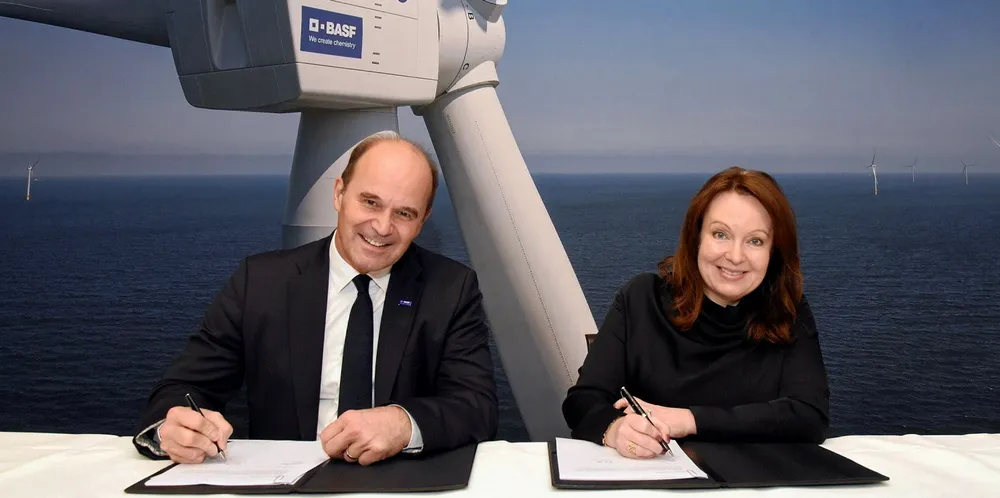BASF plans to secure more gigascale offshore wind from Vattenfall for giant German chemicals site
Chemicals giant in final talks with Swedish utility to buy 49% in 1.6GW Nordlicht 1 and 2 projects in North Sea amid sector crisis due to high energy prices

BASF once more plans to buy into North Sea offshore wind to power its Ludwigshafen complex, the chemical giant’s largest production site worldwide.
The company is in ‘advanced and exclusive discussions’ to buy 49% of Vattenfall’s Nordlicht 1 and 2 sites that are slated to have a joint capacity of 1.61GW when they enter production in 2028. Signing the transaction is expected in the first half of next year, with a final investment decision on the projects seen in 2025, and a construction start in 2026.
The 980MW Nordlicht 1 and the 630MW Nordlicht 2 sites are located 85 kilometres north of the German North Sea Island of Borkum. They are expected to jointly produce about 6TWh per year, equal to the power consumption of 1.6 million German households. Vattenfall will use its share of the electricity to supply its German customers, while BASF plans to use its part to decarbonise chemical production sites across Europe.
“For our transformation to Net Zero, we need large quantities of renewable electric power at competitive prices,” BASF CEO Martin Brudermüller said.
“Together with our long-standing partner Vattenfall, we want this project to be another milestone in securing sufficient renewable electric power for BASF in Europe, in Germany, and Ludwigshafen, our largest production site worldwide.”
Germany’s chemicals industry has suffered from steeply falling revenues and production this year and last, as the energy crisis triggered by the invasion of Ukraine has undermined its previous business model based on cheap piped gas and power from Russia.
“Wind energy is crucial to enable the fossil freedom that drives society forward. And a close collaboration with industries is just as crucial for accelerating the energy transition,” Vattenfall CEO Anna Borg said.
“I’m proud that Nordlicht 1 and 2 will provide German customers with fossil-free electricity as well as contribute to the decarbonisation of industry in Europe.”
When starting regular offshore wind tenders under a centralised system in 2021, Germany introduced a legal entry right for companies that had spent huge sums developing an area but still didn't win with them in previous auctions exclusively for pre-developed zones.
(Copyright)